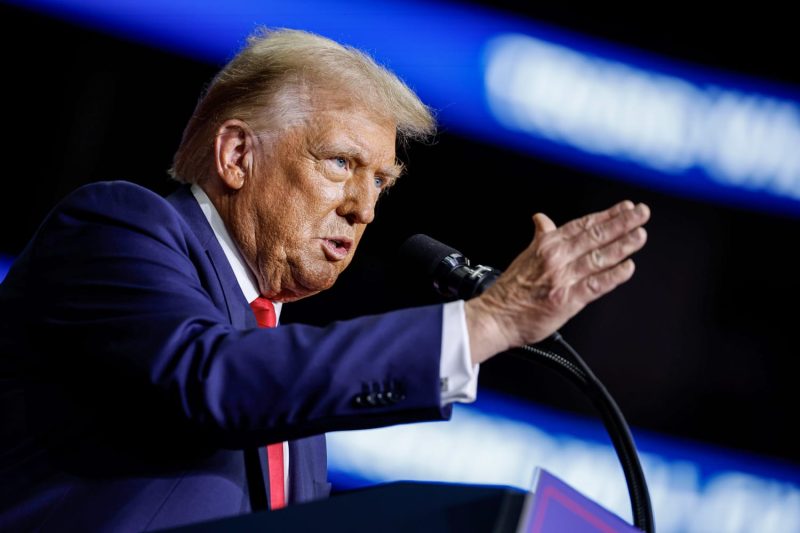
Trumponomics: U.S. Companies Race to Find Lobbyists and Loopholes Amid Tariff Threats
In today’s intensely competitive global economy, the impact of political decisions on businesses cannot be overstated. President Trump’s recent tariff threats have sent shockwaves through the business world, causing U.S. companies to scramble for lobbyists and loopholes in an effort to navigate uncertain waters and mitigate potential losses.
Tariffs, traditionally viewed as protective measures for domestic industries, have increasingly been deployed by the Trump administration as a negotiating tactic in international trade disputes. This shift has left many U.S. businesses reeling, caught between the need to maintain profitability and the desire to show support for American economic interests.
The sudden nature of these tariff threats has forced many companies to reassess their supply chains and business strategies at short notice. In an environment where stability and predictability are prized, the uncertainty arising from ever-changing tariff policies has left businesses vulnerable to sudden shocks and disruptions.
Lobbying has long been a tool used by businesses to influence government policy in their favor, and the current situation is no exception. U.S. companies are now increasingly turning to lobbyists to represent their interests in Washington, hoping to sway policymakers through targeted campaigns and strategic alliances.
However, lobbying alone may not be enough to shield businesses from the full impact of tariffs. Companies are also exploring various legal loopholes to minimize the financial burden of increased duties. This has led to a surge in legal consultations as businesses seek creative solutions to circumvent tariff restrictions and protect their bottom line.
One such loophole that has gained popularity is the use of tariff classification adjustments, where businesses reclassify their products to reduce the amount of import duties owed. While this tactic may offer temporary relief, the long-term implications of such maneuvers remain uncertain, as they could potentially invite scrutiny and backlash from authorities in the future.
Another approach taken by businesses is to seek exemptions from specific tariffs through the filing of petitions and appeals with government agencies. This process, however, is time-consuming and resource-intensive, requiring companies to make a compelling case for why they should be granted special treatment.
In conclusion, President Trump’s tariff threats have created a sense of urgency and unease among U.S. companies, prompting them to seek out both lobbying support and legal loopholes to mitigate potential losses. As the trade war continues to escalate, businesses will need to remain agile and proactive in their response to changing economic conditions, all while keeping a close eye on developments in Washington and beyond.
